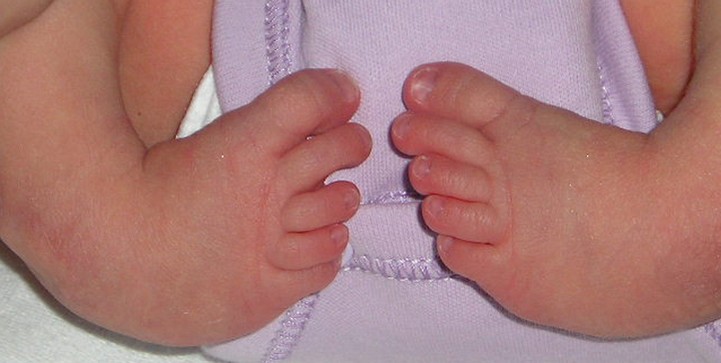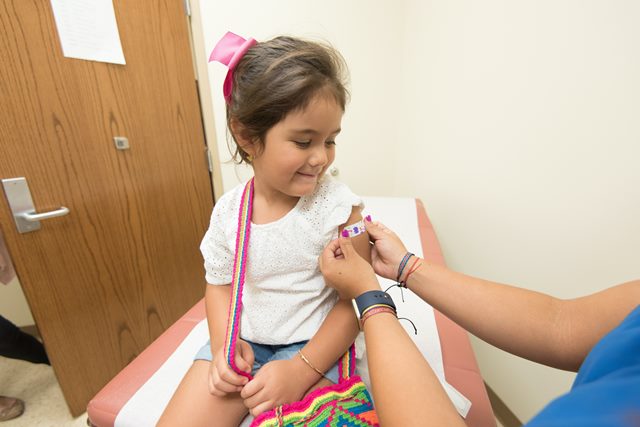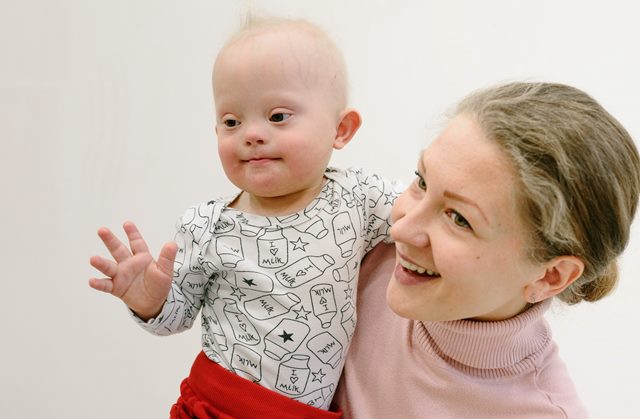Every moment and milestone in your parental journey should be treasured and enjoyed. But some parents might find it difficult when their little bundle of joy is born with a disability. Baby disabilities can happen due to many reasons. Understanding the causes and risks can help parents navigate this challenging journey with more knowledge and support.
From genetic disorders to environmental factors, our guide delves into the science behind baby disabilities and offers insight into how to provide the best care for your child. So, join us on a journey of discovery as we uncover the mystery behind baby disabilities. We hope this guide also empowers you with the knowledge you need to give your child the best chance at a healthy and happy life.

Causes of Baby Disabilities
Babies bring joy and excitement to families. But for many people, this joy and excitement may become distorted when a child is born with a disabiity.
Disabilities range in severity and can impact a child’s development, physical abilities, and overall well-being. However, understanding the causes of baby disabilities can provide families with more information and support as they navigate this difficult journey.
So, what are the causes of baby disabilities?

Genetic Disorders
Genetic disorders are a major cause of baby disabilities. These disorders occur when there is an issue with the genes that control a baby’s development.
Down syndrome, cystic fibrosis, and sickle cell anemia are examples of genetic disorders that can cause disabilities in babies. These disorders can be hereditary from one’s parents, or develop spontaneously during the egg or sperm formation process.
Read: How Can We Improve Air Quality for Better Health?

Chromosomal Abnormalities
Chromosomal abnormalities are another cause of baby disabilities. The structures in our cells that carry our genetic information are known as chromosomes. A problem with the number or structure of chromosomes can sometimes result in disabilities in babies.
Down syndrome, for example, is caused by an extra copy of chromosome 21, errors during cell division, such as non-disjunction, can cause chromosomal abnormalities. Hence, this results in an abnormal number of chromosomes when chromosomes fail to separate properly during meiosis.
Environmental Factors
Environmental factors are another cause of baby disabilities. These factors include toxins, infections, and a lack of proper nutrition during pregnancy.
or example, exposing a mother to certain chemicals, such as lead or mercury — can increase the risk of developmental delays and other disabilities in her child.
Similarly, an infection to the mother during pregnancy can harm the developing baby. Rubella, cytomegalovirus, and toxoplasmosis are infections that can cause disabilities in babies.

Maternal Health Condition
Maternal health conditions such as diabetes, hypertension, obesity, smoking, alcohol, or drug use during pregnancy can all increase the risk of disability in babies. These issues can have an immediate impact on the developing baby. Thereby, increasing the risk of certain disabilities, birth defects, or other complications.
In many cases, the cause of a baby’s disability is unknown. However, by understanding the potential causes and risk factors, families can cooperate with healthcare professionals to provide the best care for their children. This may include early intervention services, therapy, and special education programs.
In addition, genetic counseling can benefit families with a child with a genetic disorder or chromosomal abnormality. Genetic counseling can help families understand the risk of having another child with a similar condition. As well as provide information about genetic testing and other options.
Lastly, it is important to remember that early detection, diagnosis, and intervention can significantly affect the outcome of disabled children. Children with disabilities can reach their full potential and live fulfilling lives with the right support.
Put Your Tech Company on the Map!
Get featured on Nicholas Idoko’s Blog for just $50. Showcase your business, boost credibility, and reach a growing audience eager for tech solutions.
Publish NowHow Can You Prevent Baby Disabilities?
Preventing baby disabilities is a vital goal for parents and healthcare professionals alike. Several steps can be taken to reduce the risk of disabilities in babies, and we have some of them listed below:

Good Parental Care
Regular prenatal care is important to a baby’s healthy development. This includes periodic medical check-ups, as well as proper nutrition and exercise. During pregnancy, women must avoid smoking, drinking alcohol, and substance use. All of these can increase the risk of birth defects and other complications.
Expecting mothers should ensure to get prescriptions from their doctor before using any drug. Some drugs are unsafe for pregnant women. Being careless with drugs or self-medicating can be dangerous to the health of your unborn child.
Healthy Lifestyle Choices
Making healthy lifestyle choices can also aid in the prevention of baby disabilities. This includes eating a well-balanced diet, exercising regularly, and maintaining a healthy weight.
It is also essential to avoid toxic substances such as pesticides and lead — which can cause developmental delays in the baby and other health issues.
Genetic Testing
Genetic testing is an effective tool for identifying potential risks for certain disabilities in newborns. This can include testing for chromosomal abnormalities like Down syndrome and genetic disorders like cystic fibrosis and sickle cell anemia. Genetic testing can be done before or during pregnancy to help parents make informed decisions about their baby’s health.
Vaccination
Vaccination is one of the most effective ways to prevent baby disabilities. Vaccines protect babies from serious and life-threatening diseases by helping their bodies build immunity to harmful viruses and bacteria.
By getting vaccinated, babies can avoid serious illnesses that can cause long-term health problems, such as autism, cerebral palsy, and even death.

One of the most important vaccines for babies is the measles, mumps, and rubella (MMR) vaccine. This vaccine protects against three serious diseases that can cause severe health problems, including autism, deafness, and brain damage. The MMR vaccine is typically given to babies at 12-15 months of age, with a second dose between the ages of 4 and 6.
Another vaccine for babies is the polio vaccine. Polio is a serious and potentially life-threatening disease that can cause permanent paralysis. The polio vaccine is typically given to babies at 2, 4, and 6-18 months.
Diphtheria, tetanus, and pertussis (DTaP) vaccine is also important for babies. This vaccine protects against three serious diseases, autism, deafness, and brain damage. The DTaP vaccine is typically administered to babies aged 2, 4, and 6-18 months.
In addition to these vaccines, babies should also receive other routine vaccines such as Hepatitis B, Haemophilus influenzae Type B (Hib), Pneumococcal, and Varicella.
Vaccines are safe and effective as they go through extensive testing and clinical trials before being approved. Also, vaccine side effects are typically mild, mostly manifest as a sore arm or a low-grade fever. But, these side effects indicate that the body is developing immunity to the disease/diseases.
Finally, parents should ensure their babies are up to date on all recommended vaccines to ensure their best possible health. Hence, it is important to consult with a pediatrician and follow the recommended vaccination schedule to ensure the best protection for your baby.
Environmental Factors
Remember that environmental factors can play a role in the development of disabilities in babies. For example, exposure to certain chemicals, pollutants, and radiation can increase the risk of birth defects and developmental delays.
Therefore, it is essential to be aware of these risks and take precautions to reduce your exposure.
By following these steps, parents and healthcare professionals can work together to help prevent baby disabilities and ensure a healthy start for every child.
Put Your Tech Company on the Map!
Get featured on Nicholas Idoko’s Blog for just $50. Showcase your business, boost credibility, and reach a growing audience eager for tech solutions.
Publish Now
Treatments for Baby Disabilities
Treatments for baby disabilities differ depending on the condition and its severity. Here are some ways child disabilities can be treated:
Early Intervention Therapy is an Essential Treatment for Baby Disabilities
Early intervention therapy is a key treatment for babies with developmental disabilities. This includes physical therapy, occupational therapy, and speech therapy. These therapies can help babies with developmental delays learn new skills.
They also improve he child’s abilities in mobility, communication, and self-care. Physical therapy can assist babies with mobility issues — such as cerebral palsy and muscular dystrophy, in learning to sit, stand, and walk.
Occupational therapy can help babies with fine motor delays learn to hold objects and perform other self-care tasks. Speech therapy can help babies with speech delays learn to communicate effectively.
Medications Can Help Treat Baby Disabilities
Medications can also be used to treat certain baby disabilities. Antiepileptic medications, for example, can be used to treat babies who are having seizures.
Stimulant medications can help babies with ADHD. Babies with autism spectrum disorder may benefit from selective serotonin reuptake inhibitors (SSRIs). And other medications to treat symptoms such as anxiety and depression.
Surgery as a Treatment for Baby Disabilities
For babies with certain disabilities, surgery may be an option. For example, babies with cleft lip and palate can have corrective surgery to improve their ability to eat, speak, and breathe.
Also, Spina bifida babies may require surgery to close the spinal opening and prevent further spinal cord damage.

Education and Family Support
Another important aspect of treatment for babies with disabilities is education and support for their families. Special education programs and support groups can provide families with the resources and knowledge they need to help their babies reach their full potential.
To determine the best course of treatment for a disabled baby, consult with a pediatrician and specialists in the field of the specific condition. The best treatment plan will consider the child’s unique needs and abilities, as well as the family’s resources.
Before you go…
Hey, thank you for reading this blog to the end. I hope it was helpful. Let me tell you a little bit about Nicholas Idoko Technologies. We help businesses and companies build an online presence by developing web, mobile, desktop, and blockchain applications.
We also help aspiring software developers and programmers learn the skills they need to have a successful career. Take your first step to becoming a programming boss by joining our Learn To Code academy today!
Be sure to contact us if you need more information or have any questions! We are readily available.
[E-Books for Sale]
Put Your Tech Company on the Map!
Get featured on Nicholas Idoko’s Blog for just $50. Showcase your business, boost credibility, and reach a growing audience eager for tech solutions.
Publish Now1,500 AI Applications for Next-Level Growth: Unleash the Potential for Wealth and Innovation
$5.38 • 1,500 AI Applications • 228 pages
Are you ready to tap into the power of Artificial Intelligence without the tech jargon and endless guesswork? This definitive e-book unlocks 1,500 real-world AI strategies that can help you.
See All 1,500 AI Applications of this E-Book
750 Lucrative Business Ideas: Your Ultimate Guide to Thriving in the U.S. Market
$49 • 750 Business Ideas • 109 pages
Unlock 750 profitable business ideas to transform your future. Discover the ultimate guide for aspiring entrepreneurs today!
See All 750 Business Ideas of this E-Book
500 Cutting-Edge Tech Startup Ideas for 2024 & 2025: Innovate, Create, Dominate
$19.99 • 500 Tech Startup Ideas • 62 pages
You will get inspired with 500 innovative tech startup ideas for 2024 and 2025, complete with concise descriptions to help you kickstart your entrepreneurial journey in AI, Blockchain, IoT, Fintech, and AR/VR.
We Design & Develop Websites, Android & iOS Apps
Looking to transform your digital presence? We specialize in creating stunning websites and powerful mobile apps for Android and iOS. Let us bring your vision to life with innovative, tailored solutions!
Get Started Today



